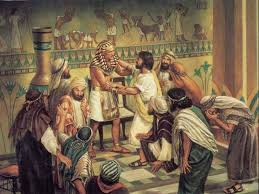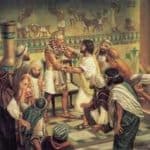I was taking a walk with a friend. As we approached a large house, she said abruptly: “Let’s cross the street!”
It turns out that my friend and her husband had had a business partnership with the homeowner. The partnership had soured; he had wronged and cheated my friend. The very mention of his name or walking by the home triggered in her a negative response. Despite her current business success, she cannot overcome her feelings of anger.
I understand her because I react similarly. Don’t we all harbor inside of us memories that elicit our strongest emotions against individuals who deceived or misled us?
In this week’s Torah portion, Joseph and his brothers return from burying their father, Jacob. Joseph stops at the pit that his brothers had thrown him into. His brothers become frightened, saying: “What if Joseph will hate us, and will pay us back the evil which we did to him?” (Gen. 50:15)
The brothers appeal to Joseph, cautioning him that his father had warned him not to take revenge.
Jacob, in fact, had never done so; he would not suspect Joseph of revenge. Nor did Joseph ever intend for vengeance. He made a detour at the pit—not to reignite negative memories, but to have the opportunity to recite the blessing we are commanded to say at a place where a miracle was performed for us. (Midrash Tanchuma)
Joseph weeps that his brothers had suspected him of such behavior. He reassures them: “Don’t be afraid. Am I instead of G d? You intended evil but G d meant it for good . . . ” (Gen. 50: 19-20)
How was Joseph able to get past his suffering without harboring any grudge against his brothers?
On the day his brothers sold him as a slave, Joseph had been a vulnerable teenager. His comfortable life as his father’s beloved son was changed forever. His brothers had acted callously and cruelly. But as far as Joseph was concerned, that was something between them and G d. What happened to him—being sold as a slave, descending to Egypt, becoming Pharaoh’s viceroy and, ultimately, saving his family from famine—was all G d’s grand plan.
Joseph reached an awareness that G d is in control of everything; therefore, his brothers had done nothing to him outside of G d’s design.
Too many of us hold on to what feels like justifiable resentment. In truth, the resentment only perpetuates and prolongs our own hurt.
Joseph teaches us how to get past this: Surrender to the knowledge that all that happens to you is part of G d’s benevolent plan. The individual that wounded you may have intended evil, but that is between that individual and G d. As far as you’re concerned, your life is following the exact script that G d wants for you.
This realization helps us begin to rid ourselves of the heavy burden of anger, resentment and hate. It also allows us to open ourselves up to receive the good that G d has in store for us.

